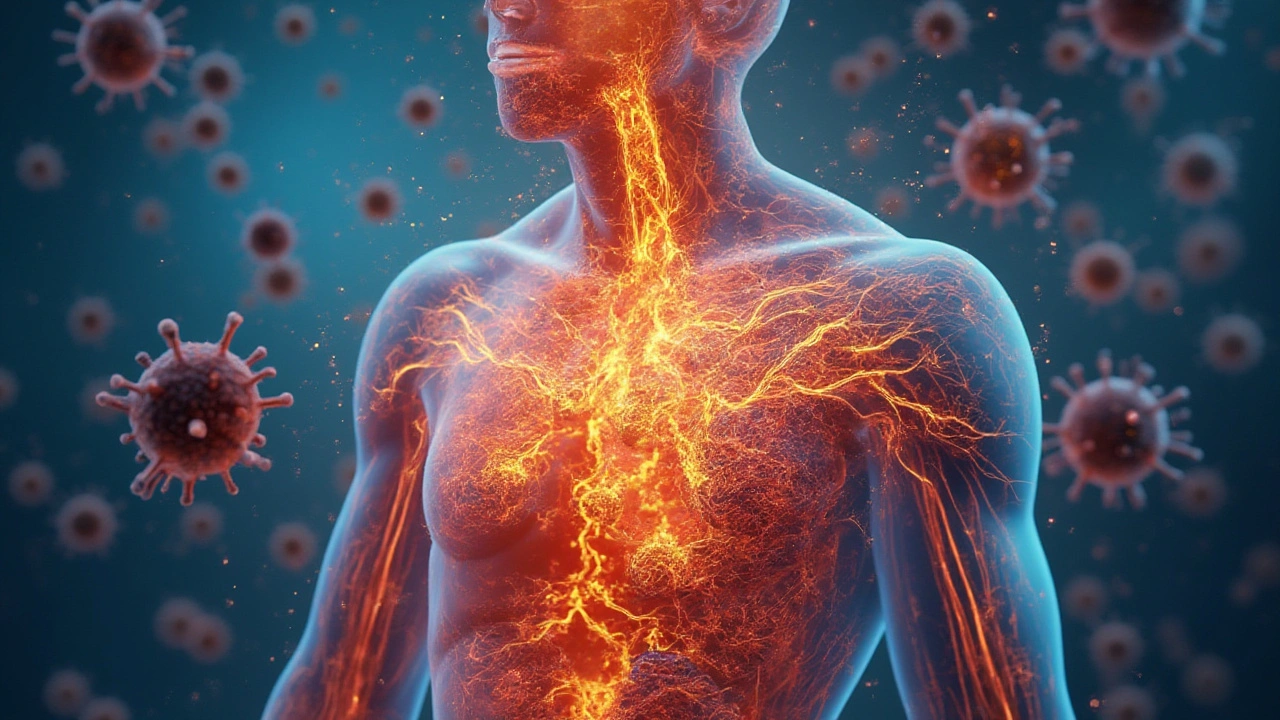Enzymes Explained: What They Are and Why They Matter
Ever wonder why a piece of fruit ripens or why you can digest a steak? The answer lies in enzymes – tiny protein helpers that speed up chemical reactions in your body and in the world around you. Think of them as the crew that gets the job done faster without getting tired.
What Exactly Are Enzymes?
Enzymes are proteins that act as catalysts. In plain terms, they lower the energy needed for a reaction, letting things happen quickly. Your stomach uses the enzyme pepsin to break down protein, while your liver relies on cytochrome P450 enzymes to process medicines. Each enzyme is picky, working on a specific type of molecule called a substrate.
When the enzyme meets its substrate, they lock together like a key and lock. This temporary bond creates a new shape that speeds up the reaction, then the enzyme pops back out unchanged, ready for the next round.
How Enzymes Affect Everyday Life
Enzymes aren’t just inside you – they’re everywhere. In the kitchen, amylase in saliva starts breaking down carbs the moment you chew. Laundry detergent uses proteases to dissolve protein stains. Even your garden benefits from soil enzymes that turn dead plant matter into nutrients.
Because they work at low temperatures and are biodegradable, enzymes are a green alternative to harsh chemicals in many industrial processes. That’s why you’ll see them listed on cleaning products, food labels, and even cosmetics.
Enzyme Supplements: When Do They Help?
People sometimes take enzyme pills to aid digestion, reduce bloating, or support specific health goals. Lactase supplements, for example, let lactose‑intolerant folks enjoy dairy without discomfort. Pancreatin blends can assist those with pancreatic insufficiency.
Before grabbing a bottle, consider why you need it. If you have a diagnosed deficiency, a targeted supplement makes sense. For general digestive support, a broad‑spectrum product with protease, amylase, and lipase might be enough.
Choosing the Right Enzyme Product
Look for clear labeling: the type of enzyme, its activity units (like USP or FCC), and dosage per serving. High‑quality brands often test for potency and purity. Avoid products with fillers that can cause allergies.
If you’re on medication, check for interactions. Some enzymes, especially those that affect the liver’s cytochrome system, can change how drugs are processed. A quick chat with a pharmacist or doctor can save headaches later.
Natural Ways to Boost Your Own Enzyme Production
Eating raw or lightly cooked foods preserves the enzymes already present. Fresh pineapple and papaya contain bromelain and papain, which help break down proteins. Fermented foods like sauerkraut and kimchi are rich in live enzymes that aid gut health.
Staying hydrated and getting enough vitamins, especially B‑complex, supports your body’s enzyme factories. Lifestyle habits—like avoiding excess alcohol and limiting processed foods—keep your enzyme systems running smoothly.
Common Myths About Enzymes
Myth: More enzyme pills = better results. Truth: Over‑supplementing can cause side effects like diarrhea or nutrient imbalances. Your body usually makes enough unless a specific issue is identified.
Myth: All enzymes work the same for everyone. Truth: Genetics, diet, and health conditions affect which enzymes you need and how well they work.
Bottom Line
Enzymes are essential, natural catalysts that keep your body and many everyday processes running efficiently. Understanding what they do helps you make smarter choices—whether picking a supplement, choosing foods, or selecting cleaning products. Keep an eye on quality, talk to a professional if you’re unsure, and let these tiny proteins do the heavy lifting for you.
Enzymes control almost everything in our bodies, from digestion to energy. What really happens when they're missing? This article breaks it down.
